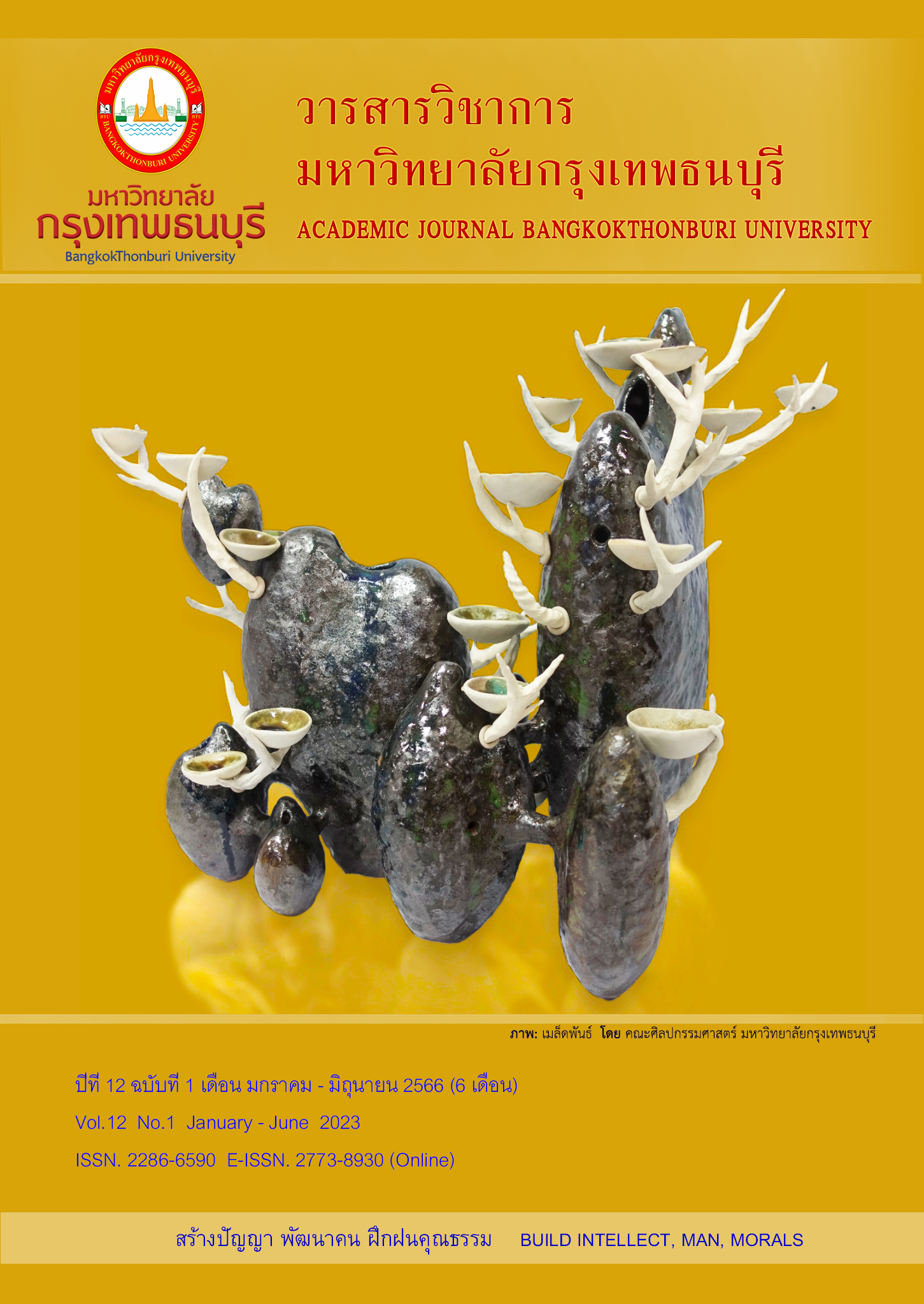The Competency Development of Online Teacher in Mahamakut Buddhist University Under Measures to Prevent the Spread of The Coronavirus 2019
Main Article Content
Abstract
This Mixed-Method Research aimed to study 1) need assessment of online teacher competency and 2) approach competency development of Online Teacher in Mahamakut Buddhist University under measures to prevent the spread of The Coronavirus 2019. The populations of quantitative research used in the study were 120 people percent of Faculty of Social Sciences’s student by stratified sampling. Tools used questionnaire in the study. Frequency, percentage, mean, standard deviation, PNI Modified were statistics applied for the study. The populations of qualitative research used in the study were 8 people by purposive sampling. Tools used Interview in the study
The results indicated that; 1) the average scores of actual and desirable competencies of online teacher found with statistically significantly different at the .05 level When considering each aspect, the need assessment of online teacher competency were respectively sorted descending order of the needs as follows. (1) Pedagogical Knowledge were rated at high level. (PNI = 0.42) (2) Organizing Learning Activities (PNI = 0.36) (3) Information and Communication Knowledge and Skills (PNI = 0.34) . And (4) Learner Support and Guidance (PNI = 0.32), (5) Assessment and Evaluation (PNI = 0.32) was ranked at the last. 2) Approach competency development of Online Teacher, Executive to pay more attention to policy formulation and planning for development of online teaching and learning for the excellence. As well as, Establish center of education online for support to management systems and online teaching for teacher and students.
Article Details

This work is licensed under a Creative Commons Attribution-NonCommercial-NoDerivatives 4.0 International License.
References
กระทรวงการอุดมศึกษา วิทยาศาสตร์ วิจัยและนวัตกรรม. (2563). มาตรการให้ความช่วยเหลือผู้ได้รับผลกระทบจากแพร่ระบาดของเชื้อไวรัสโคโรนา 2019 หรือ โควิด 19 (ฉบับที่ 2). (25 กุมภาพันธ์). กรุงเทพมหานคร: กระทรวงการอุดมศึกษา วิทยาศาสตร์ วิจัยและนวัตกรรม.
จิรัชยา จันทร์พงษ์ศรี เบญจพร สว่างศรี และปริญญา เกิดปัญญา. (2565). ผลการจัดกิจกรรมการเรียนรู้แบบออนไลน์ โดยใช้ระบบห้องเรียน Google Classroom รายวิชาทัศนียภาพและการตกแต่งแบบสำหรับนักเรียนระดับประกาศนียบัตรวิชาชีพ. วารสารวิทยาศาสตร์และเทคโนโลยี มทร.สุวรรณภูมิ, 6(1), 1-11.
ณรงค์ฤทธิ์ ประสานตรี. (2559). รูปแบบการพัฒนาอาจารย์มหาวิทยาลัยราชภัฏกลุ่มรัตนโกสินทร์. วารสาร วิจัยราชภัฏพระนคร สาขามนุษยศาสตร์และสังคมศาสตร์, 11(1), 203-216.
ปราวีณยา สุวรรณณัฐโชติ. (2561). สมรรถนะและบทบาทผู้สอนออนไลน์: การแสดงตนและสนับสนุนผู้เรียน. วารสารบัณฑิตศึกษา มหาวิทยาลัยราชภัฏวไลยอลงกรณ์ ในพระบรมราชูปถัมภ์, 12(2), 244-256.
พวงเพ็ญ อินทรประวัติ ณฐกร ดวงพระเกษ และฐิติรัตน์ คล่องดี. (2564). สมรรถนะของครู 4 ด้านที่ส่งผลต่อการเรียนรู้ของผู้เรียนมากที่สุด. วารสารวิชาการศึกษาศาสตร์, 22(1), 180-195.
เพียงฤทัย พุฒิคุณเกษม และชนากร ปรีชา. (2564). สมรรถนะสำคัญสำหรับผู้สอนออนไลน์ในการจัดการศึกษาทางไกล. วารสารการบริหารนิติบุคคลและนวัตกรรมท้องถิ่น, 7(8), 373-384.
มัลลิกา เกตุชรารัตน์, พร้อมพิไล บัวสุวรรณ และวิสุทธิ์ วิจิตรพัชราภรณ์. (2558). การศึกษาสมรรถนะที่คาดหวังของอาจารย์ในมหาวิทยาลัยเกษตรศาสตร์. วารสารคุรุศาสตร์, 43(1), 112-127.
มหาวิทยาลัยมหามกุฏราชวิทยาลัย. (2563). มาตรการป้องกันการแพร่ระบาดของเชื้อไวรัสโคโรนา 2019 (COVID-19) (ฉบับที่ 2). (17 มีนาคม). นครปฐม: มหาวิทยาลัยมหามกุฏราชวิทยาลัย.
เรณุมาศ มาอุ่น. (2559). การจัดการเรียนการสอนในระดับอุดมศึกษาอย่างมีประสิทธิภาพ. JOURNAL OF SOUTHERN TECHNOLOGY, 9(2), 169-176.
สมเกียรติ กาทองทุ่ง และรุ่งระวี สมะวรรธนะ. (2557). แนวทางการพัฒนาสมรรถนะของอาจารย์พลศึกษาในสถาบันการพลศึกษาเพื่อขับเคลื่อนสู่ประชาคมอาเซียน. วารสารอิเล็กทรอนิกส์ทางการศึกษา, 9(2), 144-158.
Bawane, J. & Spector, M. J. (2009). Prioritization of online instructor roles: implications for competency based teacher education programs. Distance Education, 30(3), 383-397. http://dx.doi.org/10.1080/01587910903236536.


